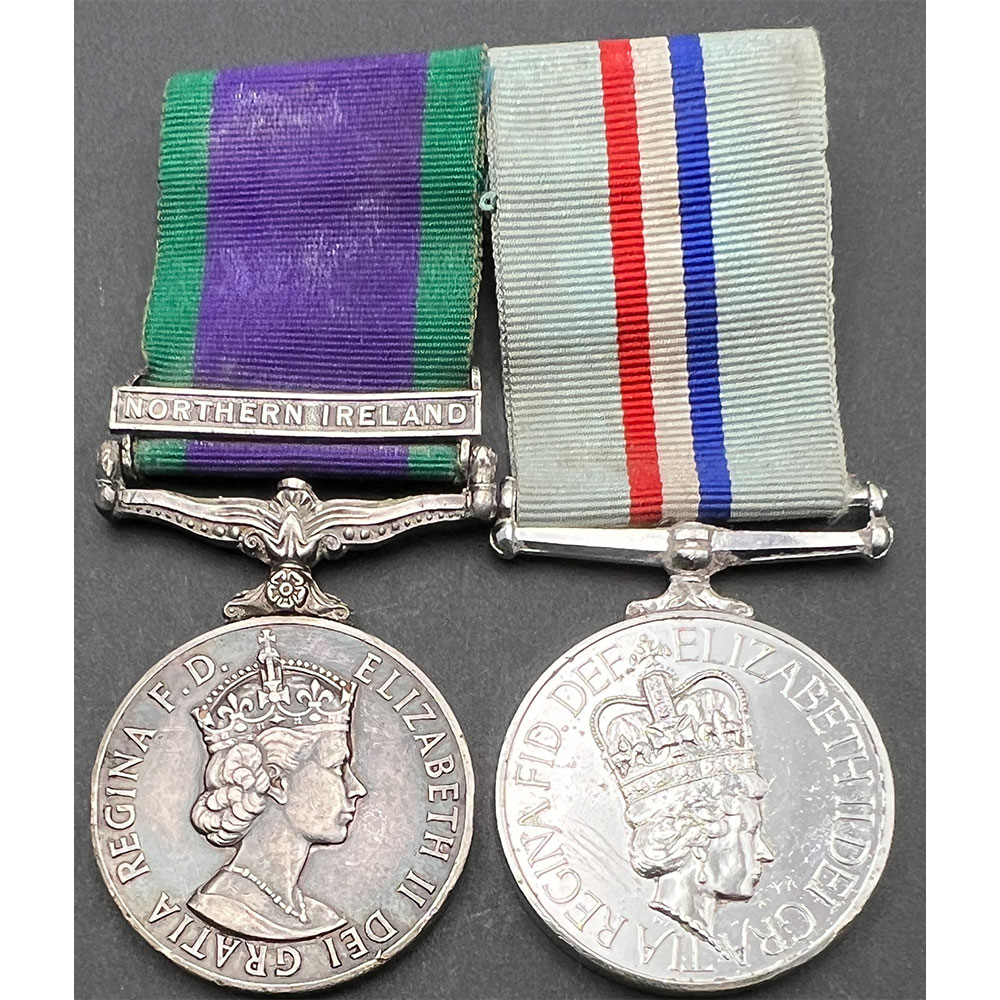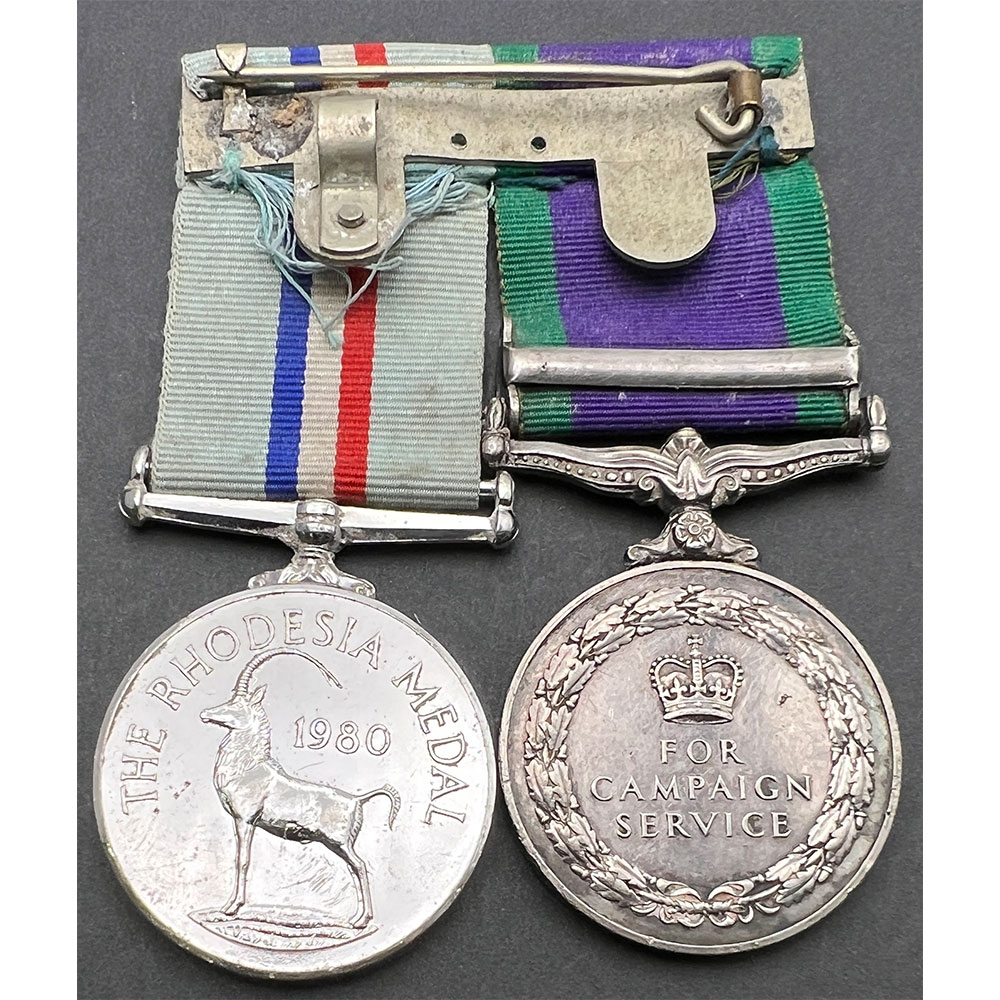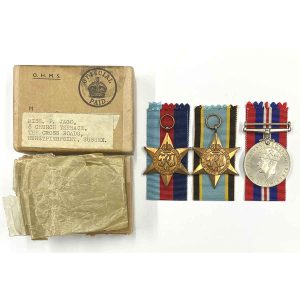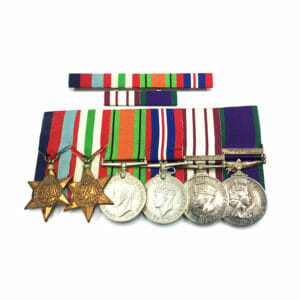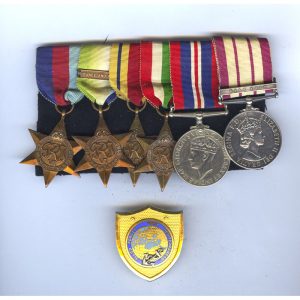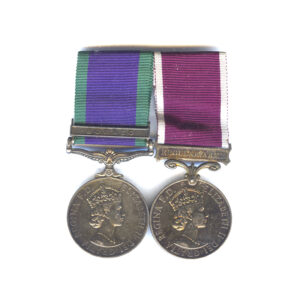Description
General Service Medal, bar Northern Ireland, Rhodesia 1980 Medal, 24133349 Corporal G.C. Jones, Royal Engineers. A very rare officially named medal for Operation Agila, Zimbabwe Independence.
GSM Officially impressed: “24133349 Spr G.C. Jones. R.E.”
Rhodesia Officially impressed: “24133349 CPL G C JONES RE”
A very rare pair, period swing mounted, some light bruising and general wear on service.
Service number would date enlistment to between December 1966 and April 1969.
The medal was awarded for participation in “Operation Agila”, to the “Commonwealth Monitoring Force in Rhodesia from 1979-80”, only the medals to serving Military were officially named, the large amount of civilians and policemen present, received unnamed medals, only approximately 2500 medals were issued in total.
This unusual “Campaign” Medal was only awarded to about 996 members of the British Army, 132 Officers and 864 men, whose medals would be officially impressed for issue, whereas the remainder to Civlians and Police were issued unnamed.
Of these, Corporal Jones represented one of about 10 Officers and 76 men of the Royal Engineer who received this medal for having took part in “Operation Agila” during the period of Independence for Zimbabwe, previously known as Rhodesia.
The Rhodesia 1980 Medal is an unusual and rather unique medal, as at the time the Royal Mint were experimenting with untarnishable medals and attempting to cut costs from all the years of making solid silver medals.
The idea was now to make medals from Cupro-Nickel, in a similar manner as they had been producing Coins and WW2 Medals since 1947, but these medals were to be plated with Rhodium, to create a medal which would never tone or require polishing. However it was not so practical and naming the medals was another obstacle as it had to be done after the plating, also some examples had the plating peel off. 2 years later when they produced the South Atlantic Medal for the Falklands War, they continued to produce medals in Cupro-Nickel but abandoned the Rhodium plating method.
